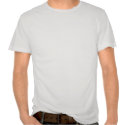Have yourself a merry 'nano' Christmas! Nanotechnology holiday gifts
 | WASHINGTON -- Tell a friend you are buying them a nanotechnology gift for the holidays, and visions of Star Trek collectables or geeky electronic toys start to dance in their heads. Nanotechnology Consumer Products |
For do-it-yourselfers, there are Black & Decker’s DeWalt cordless power tools, with a powerful nanotech battery. Children wish for Apple’s® iPod Nano®. Twentysomethings may think the ideal present for their first apartment kitchen is a set of FresherLonger™ Miracle Food Storage containers by Sharper Image®, infused with naturally antibacterial silver nanoparticles which makers claim help fruits, vegetables, cheeses and even raspberries stay fresh longer. Or, they may want the Babolat® NS™ Tour Tennis Racket, with carbon nanotubes used to stiffen key areas of the racquet head and shaft, which the company touts as 100 times more rigid than steel and 6 times lighter!
According to recent polls, the majority of Americans have heard little or nothing about nanotechnology. But last year, according to Lux Research, nanotechnology was incorporated into more than $30 billion in manufactured goods. By 2014, an estimated $2.6 trillion in global manufactured goods will incorporate nanotechnology.
This first and largest publicly available inventory of nanotechnology consumer products is newly updated with almost 70 percent more nanotechnology consumer products than when it was first launched in March 2006. Nanoscale silver is now the most often identified nanomaterial used in consumer products in the inventory. The number of products containing nano-engineered silver has nearly doubled in eight months. The second highest nanoscale material cited by manufacturers is carbon, including carbon nanotubes and fullerenes, up almost 35 percent.
Nanotechnology is the ability to measure, see, manipulate and manufacture things usually between 1 and 100 nanometers (nm). A nanometer is one billionth of a meter. A human hair is roughly 100,000 nanometers wide. The limit of the human eye’s capacity to see without a microscope is about 10,000 nm. ###
The Project on Emerging Nanotechnologies is an initiative launched by the Woodrow Wilson International Center for Scholars and The Pew Charitable Trusts in 2005. It is dedicated to helping business, government and the public anticipate and manage possible health and environmental implications of nanotechnology.
Contact: Sharon McCarter sharon.mccarter@wilsoncenter.org 202-691-4016 Project on Emerging Nanotechnologies
Technorati Tags: nanofibers or Nanoscientists and Nano or Nanotechnology and nanoparticles or Nanotech and nanotubes or nanochemistry and nanoscale or nanowires and Nanocantilevers or nanometrology and nanostructure or merry 'nano' Christmas and Star Trek or nanotech battery














No comments:
Post a Comment